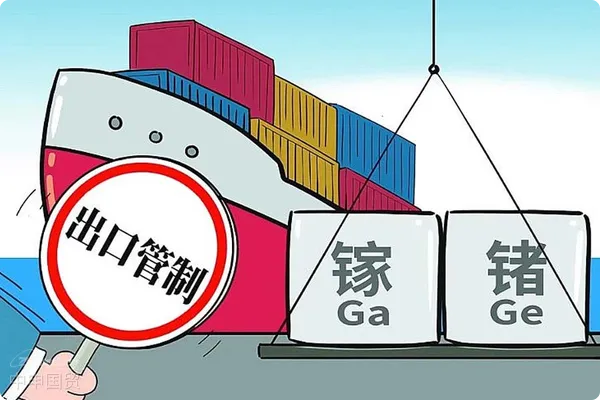- Shanghai Zhongshen International Trade Co., Ltd. - Two decades of trade agency expertise.
- Service Hotline: 139 1787 2118
According to the announcement, the items included in the scope of control mainly include antimony and its compounds, as well as super - hard materials represented by diamond. These items have a wide range of applications in both civilian and military fields due to their unique physical and chemical properties. As a strategic key mineral, antimony is not only used in the production of civilian products such as flame retardants, alloys, and semiconductor components, but also plays an important role in the military field, such as in the manufacture of explosives, ammunition, and night - vision equipment. Similarly, super - hard materials, known as the hardest and sharpest industrial teeth, are indispensable in aerospace, national defense, and high - tech manufacturing.

The spokesperson of the Ministry of Commerce of China emphasized that this control measure is not targeted at any specific country or region, but a necessary measure for China to fulfill its international obligations and safeguard national security. Export applications that meet relevant regulations will be approved, and normal international trade activities will not be affected. This statement aims to dispel the concerns of the international community and show that China is committed to maintaining the stability of the global industrial chain and supply chain.
It is worth noting that similar export control measures are not uncommon internationally. Antimony and super - hard material - related items are already included in the dual - use item lists of international export control mechanisms such as the Wassenaar Arrangement (WA) and the Missile Technology Control Regime (MTCR). As members of these mechanisms, the United States, Japan, South Korea, and the EU have included these items in their respective export control systems. Chinas control measure this time can be regarded as an important step in line with international practices.
However, the introduction of this policy has also raised some concerns. As a major producer and exporter of antimony and super - hard materials, Chinas move may have a short - term impact on the global relevant industrial chain. Some countries may worry that this will exacerbate the tension in the global supply chain, especially against the backdrop of the complex geopolitical situation.
However, the introduction of this policy has also raised some concerns. As the main producer and exporter of antimony and superhard materials, Chinas move may have a short - term impact on the global relevant industrial chain. Some countries may worry that this will exacerbate the tension in the global supply chain, especially against the backdrop of the complex geopolitical situation.
In response, Chinese authorities emphasized that export controls do not equate to a ban on exports. The Export Control Law clearly stipulates a licensing system, and eligible export operators can obtain export licenses through application. More importantly, the law encourages enterprises to establish internal compliance systems, and enterprises with good operations may be granted convenience measures such as general licenses. These regulations aim to balance the needs of national security and the normal business activities of enterprises.
From a broader perspective, this policy reflects Chinas growing influence and sense of responsibility in the global trade of strategic materials. As the worlds second - largest economy and a major producer of mineral resources, China is striving to strike a balance between safeguarding its own interests and fulfilling international responsibilities. By implementing such export control measures, China, on the one hand, demonstrates its determination to protect key resources and technologies, and on the other hand, shows its attitude of participating in global governance and abiding by international rules.
For domestic enterprises, this policy may bring short - term challenges, but in the long run, it is expected to promote the industry to develop in a higher - quality and more standardized direction. Enterprises need to strengthen compliance management and increase the technological content of their products to adapt to the new regulatory environment. At the same time, this also provides an opportunity for Chinese enterprises to seek a more high - end position in the global value chain.
Looking to the future, with the implementation of the policy, how China balances national security, economic interests and international responsibilities will continue to be closely watched. The specific implementation details of the policy, its actual impact on the global supply chain, and the response of the international community will all be key points of observation. Undoubtedly, the introduction of this policy marks an important step for China in the field of global strategic materials trade management, and its far - reaching impact remains to be verified by time.
Overall, Chinas decision to impose export controls on antimony and superhard materials reflects the prudence and strategic considerations of a major country in the face of a complex international situation. It not only concerns national security and economic interests but is also an important measure for China to participate in global governance and shape international rules. Finding a balance between safeguarding national interests and promoting international cooperation will be a continuous challenge and opportunity for China.
Related Recommendations
? 2025. All Rights Reserved. 滬ICP備2023007705號-2  PSB Record: Shanghai No.31011502009912
PSB Record: Shanghai No.31011502009912









